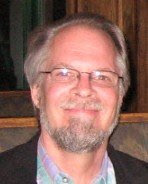If churches and other houses of worship are to be meaningful in the 21st century, the question of who is included and who is excluded will be crucial for each community of faith to decide. One can observe various groups struggling with this issue every day in the news. Are women to be fully included? How about gay folk or those of differing religious views? These are tough questions for many groups.
Cal Thomas, in an opinion piece published July 24, argues passionately that exclusion is at the heart of Christianity and that inclusion is an abandonment of the true faith. He states, "Inclusivity has nothing to do with the foundational truths set forth in Scripture. The church, which belongs to no denomination, but to its Founding Father and His Son, is about exclusivity for those who deny the faith. The church is inclusive only for those who are adopted by faith into God's family." Thomas uses this line of thinking to ridicule the participation of gay folk in the Episcopal church and Jimmy Carter's concerns about the role of women in the Southern Baptist church.
This kind of tribal perspective is common in conservative Christianity, which has a long tradition of dividing us all into the sheep and the goats, along with dire threats for those who come out on the wrong side of the line. Indeed, this kind of exclusivist thinking, and the justification of it using religion, is a kind of unconscious mental habit in American culture.
Precisely the same question, namely who will be included and who will be excluded, lies at the center of the current health care debate. If exclusion is considered God's will, as Mr. Thomas and many others apparently believe, then universal health care would represent a major shift away from that kind of thinking. Let us pray that we can make that shift.
If religion is to be meaningful in the 21st century, it will need to move away from exclusion and shift increasingly toward inclusion. Exclusive religion will keep us from uniting in the crucial ways needed to resolve our deepest social problems, which demand global, interfaith and intercultural cooperation. Inclusive, welcoming religion has the potential to inspire many of us to work energetically for the common good.
"Inclusivity" may not be in the Bible, but love of neighbor certainly is. And who is our neighbor? Precisely the one we have difficulty accepting, like the despised Samaritan in the parable, who turns out to be a healer. When we can love and include those who are not like us, then we are truly on the way. Which way do you think religion is moving? Send me your thoughts.
Showing posts with label exclusive. Show all posts
Showing posts with label exclusive. Show all posts
Wednesday, July 29, 2009
Subscribe to:
Posts (Atom)



